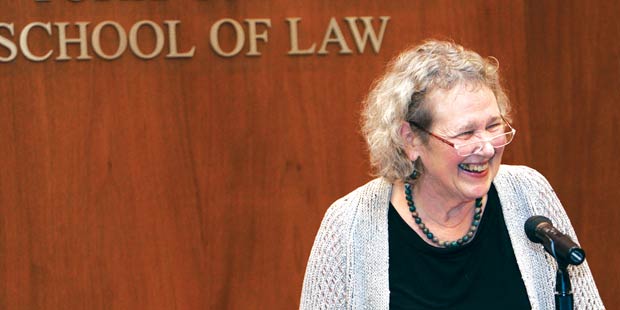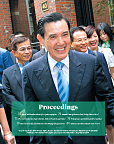The Good Work Continues
Printer Friendly VersionFor over half a century, the Hays Program has nurtured law students pursuing public interest careers by providing them with a stipend and academic support. A celebration last October of the program’s 55th anniversary included a critical discussion of Supreme Court cases by former Hays Fellows; the announcement of a new fellowship named after Sylvia Law ’68, Elizabeth K. Dollard Professor of Law, Medicine, and Psychiatry and co-director of the Hays Program; and a keynote speech by Susan Herman ’74, the president of the American Civil Liberties Union.
In the opening panel, Hays alumni considered “Which Recent Case Lost in the Supreme Court Can Civil Libertarians Best Live With (and May Even Have Been Right)?” The panelists included David Rudovsky ’67, founding partner of Kairys, Rudovsky, Messing & Feinberg; Madeline deLone ’94, executive director of the Innocence Project; Rachel Meeropol ’02, senior staff attorney at the Center for Constitutional Rights; and Rachel Goodman ’10, staff attorney at the ACLU Racial Justice Program. In posing the initial question, Norman Dorsen, Frederick I. and Grace A. Stokes Professor of Law and co-director of the Hays Program, had asked these former fellows to work hard—to reframe cases that might otherwise simply be dismissed as “bad decisions” by a conservative Court.
Before discussing his case, Rudovsky shared a poignant story. Having graduated in 1967, he could recall a time when this panel’s question would not have been so relevant. “Civil libertarians were winning not all cases, but many. We were about to launch our legal careers, my fellow Hays Fellows and others, thinking the future looks bright.” But soon after his graduation, the Court ruled that burning a draft card was not protected by the First Amendment. Rudovsky added with rueful humor, “And so now we have 45 years since then of bad law.”
And yet, he said, he and his colleagues still move forward. In Rumsfeld v. FAIR (2006), law schools that objected to the “Don’t Ask, Don’t Tell” policy unsuccessfully argued for a First Amendment right to bar military recruiters from their campuses. Although the other side prevailed, that loss yielded discussion and protest. “[The students] were much more energized by that process—the protest process—than arguments in court,” Rudovsky said. The reaction informed a larger conversation about LGBT rights, culminating in the repeal of “Don’t Ask, Don’t Tell” in 2010. This case, he concluded, affirmed “the power of reengineering our thoughts, reconsidering, and using some other methods to reach the same result.”
—

